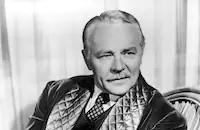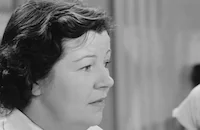My Brother Talks to Horses, distinguished by Zinnemann's immaculate craftsmanship, is a charming period comedy about Lewie Penrose (Jackie "Butch" Jenkins), a nine-year-old Baltimore lad who claims he can communicate with horses and pick the winners of upcoming races. As Lewie's older brother (Peter Lawford) carries on a romance with a pretty young woman (Beverly Tyler), a gambler (Charles Ruggles) becomes convinced that the boy's way with the nags could lead to a sure thing in an upcoming Preakness race.
Jenkins, the epitome of the all-American kid with his freckles, buckteeth and scruffy charm, was the son of actress Doris Dudley. After memorable roles as the kid brother of Mickey Rooney in The Human Comedy (1943) and Elizabeth Taylor in National Velvet (1944), he became one of the most recognizable child actors of the 1940s. But, according to Ephraim Katz in The Film Encyclopedia, he was forced to give up his acting career as he entered adolescence after developing a stutter. In later years Jenkins supervised the East Texas Water System and ran a chain of car washes.
Producer: Samuel Marx
Director: Fred Zinnemann
Screenplay: Morton Thompson, from his novel
Art Direction: Cedric Gibbons, Leonid Vasian
Cinematography: Harold Rosson
Costume Design: Walter Plunkett
Editing: George White
Original Music: Rudolph G. Kopp
Cast: Jackie "Butch" Jenkins (Lewie Penrose), Peter Lawford (John S. Penrose), Beverly Tyler (Martha), Edward Arnold (Mr. Bledsoe), Charles Ruggles (Richard Pennington Roeder), Spring Byington (Mrs. Penrose).
BW-93m.
by Roger Fristoe





























